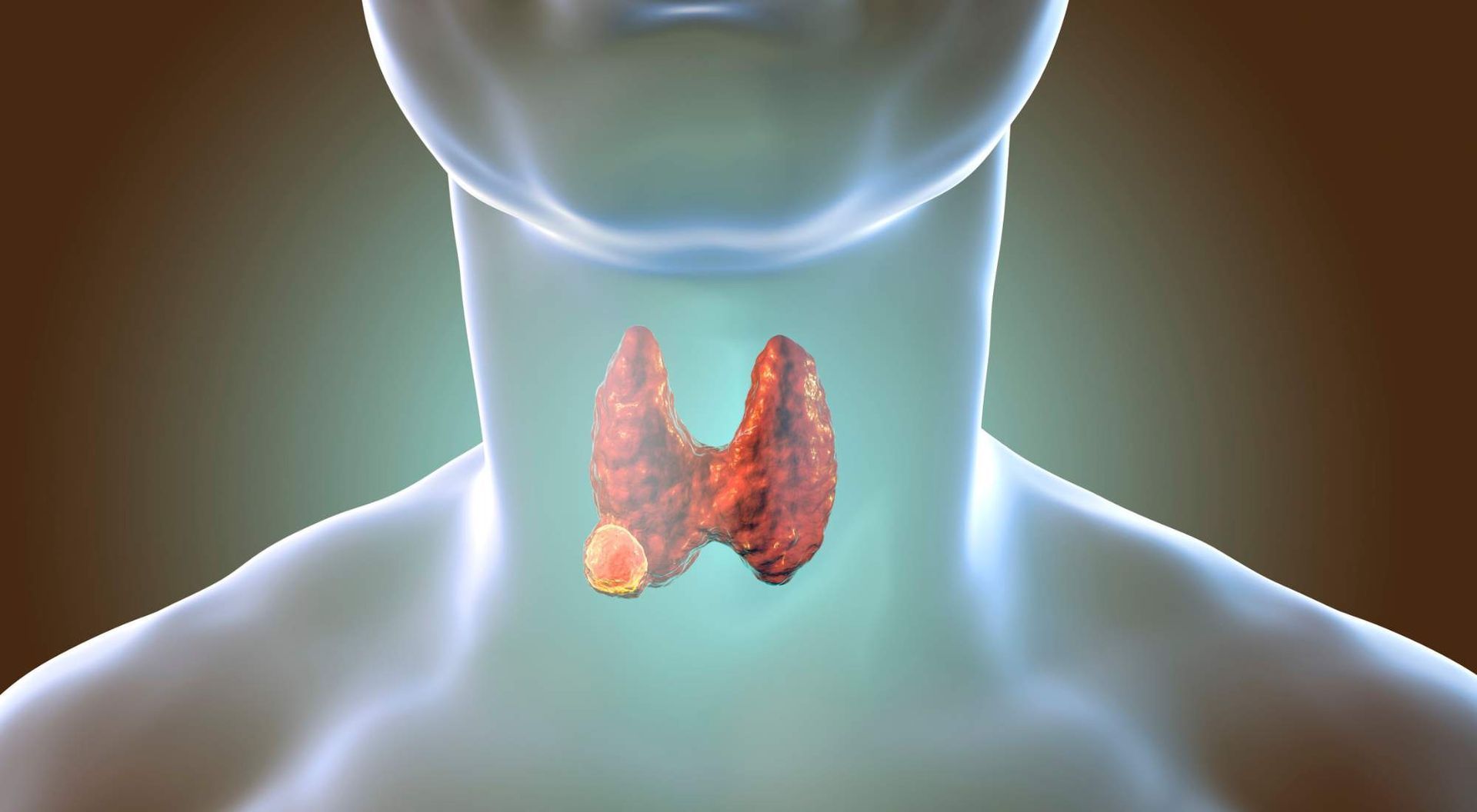How Long Do Thyroid Flare-Ups Last? Determining Factors + 5 Ways To Shorten a Thyroid Flare
"The content below is not intended to be a substitute for professional medical advice, diagnosis, or treatment. Always seek the advice of your physician or other qualified health provider with any questions you may have regarding a medical condition."
Are you lethargic? Is your body aching? Are you feeling sick? If you have hypothyroidism, hyperthyroidism, or Hashimoto’s disease, these symptoms are no stranger to you. Sometimes your body also throws in brain fog, dizziness, and emotional dysregulation. Ugh.
You KNOW it’s going to be a hard day. Again.
But there’s good news.
We can help you better understand what’s happening and why, plus we’ll suggest some things you can do to feel better faster.
Table of Contents
What Is a Thyroid Flare-Up?
Thyroid flare-ups are often caused by stress or lack of sleep. Unfortunately, for those with thyroid dysregulation, the days that follow a flare-up can be unbearable.
It’s a little different for everyone, but the most common symptoms of a thyroid flare are:
- Headaches, specifically migraines
- Brain fog
- Fatigue
- Anxiety
- Depression
- Mood swings
- Body aches and pains
- Sensitivity to cold and heat
- Weight gain
For some, thyroid issues can also impact gastrointestinal function and menstrual cycles. Diarrhea. Constipation. Stomach pain. Irregular, heavy periods. Severe cramping. All-around yuck.
It really depends on which side of the coin your thyroid issues fall on — hypothyroidism or hyperthyroidism — as to which symptoms will be the most present and impactful in your life. Either way, thyroid disease, particularly during flares, can be intense and difficult to manage.
There is hope. You can feel better sooner than you think and live your life with fewer flare-ups.
How Long Does a Thyroid Flare-Up Last?
Flare-ups typically last for a few days.
If stress levels remain high, you don’t rest, and you continue to eat triggering foods, they can last even longer. Some people even report flares lasting for weeks.
A lot of it depends on how well you take care of yourself.
When you have a flare-up, your body tells you it is overtired, overstimulated, and overworked. Your thyroid cannot keep up. It’s critical to listen to your body.
Eating nutrient-rich foods, resting well, and understanding your particular health condition should be among your first steps toward feeling better.
From there, learning specifically what foods, exercises, and habits work well to support a healthy thyroid is how you take control of your overall health and wellness.
4 Factors That Can Determine How Long a Thyroid Flare-Up Lasts
Let’s dive a bit deeper into the specific elements that are at play when it comes to your thyroid health and what’s causing your flares.
You want to understand what is happening in your body, in particular with your thyroid. From there, you can address the flares head-on and make changes that will result in more days where you feel good.
#1: Your Thyroid Condition
Your specific condition has a lot to do with how your flare-ups present.
Hypothyroidism, hyperthyroidism, Hashimoto’s thyroiditis, and Graves' disease are all different. The severity and length of flare-ups will vary considerably depending on your condition.
Regardless of which condition you suffer from, there are many ways to improve your thyroid function.
#2: Your Overall Health
What else is going on with your health?
Do you have an autoimmune disorder or any other chronic conditions? It’s possible that these things can complicate and lengthen thyroid flare-ups.
Seeing a
holistic nutritionist
can provide insight into what diet and lifestyle changes can help you feel better sooner. Make sure you are honest about all known health conditions during your consultation.
#3: Your Stress Level
High levels of stress can be detrimental to your health, especially if you have a thyroid imbalance. Stress can increase inflammation in the body and cause hormones to become unbalanced.
Want your flare-ups to happen less often and last less time? Find ways to decrease stress, and in particular, eliminate chronic stressors.
Some great ways to de-stress are:
- Meditation
- Stretching/Yoga
- Walking
- Spending time outdoors
- Engaging in activities that make you smile and laugh
- Writing gratitude lists and a general shift toward living in gratitude
- Setting small, easily attainable daily goals and reaching them
- Prioritizing rest
- Massage
- Acupuncture
#4: Your Diet
What you eat affects how you feel. There are so many things to consider and analyze about what we eat.
One thing is for sure: an unhealthy diet increases inflammation. High levels of inflammation will cause your flare-ups to happen more frequently and for longer.
But what can you do about it?
Some things to consider include:
- Eating a gluten-free diet
- Incorporating anti-inflammatory and superfoods into your daily meals
- Trying the Mediterranean diet
- Decreasing your sugar consumption
- Eliminating processed foods
What you eat is the most personal and impactful decision you can make about your health.
It can be overwhelming to figure out which eating plan is the best choice for you. You may also need help with how to keep up this lifestyle and not just endlessly yo-yo with diet trends.
Dr. Donna Sergi at HealthierU would like to guide you in this process.
5 Ways To Shorten the Duration of a Thyroid Flare-Up
There are things you can do right now to help your thyroid function properly and decrease your flare-ups, including:
- Eating an anti-inflammatory diet
- Taking supplements
- Focusing on your gut health
- Getting adequate rest
- Seeing a holistic nutrition practitioner
Let’s explore these suggestions in depth.
#1: Eat an Anti-Inflammatory Diet
We can’t stress enough how important gut-healthy, nutrient-rich, and anti-inflammatory foods are if you want your thyroid to function better. A holistic nutritionist will help you identify what foods are ideal for you and your specific health condition(s).
Here are some amazing foods to include in your weekly diet:
- Wild-caught fish, like tuna and salmon
- Raw dairy
- Fermented grains
- Walnuts (and other nuts)
- Spinach
- Grass-fed beef
- Beef liver
- Asparagus
- Chickpeas and other legumes
- Cocoa
- Brussels sprouts
- Pistachios
- Flax seed
- Bone broth
You don’t have to eat all of these foods every day — that wouldn’t be realistic. But increasing the frequency and quantity of nutrient-rich foods in your diet can be life-changing.
Just as important are foods to avoid.
Foods high in sugar and overly processed foods are a nightmare for inflammation and, in turn, your thyroid.
For many with thyroid issues, gluten, soy, and sugary foods also need to be avoided. Eating them can cause flare-ups.
It’s not as hard as it may seem to change how we eat. HealthierU is here to support you every step of the journey.
#2: Take Supplements
Healthy supplements can help your thyroid function immensely. Without the proper nutrients, your body cannot build immunity, fight inflammation, and regulate hormones.
Talk to your holistic nutritionist today about which supplements are the most important for you and your specific condition.
The following supplements are often helpful with thyroid function and regulation:
- Vitamin C
- Vitamin D
- Selenium
- Iron
- Zinc
- Magnesium
- Probiotics
#3: Focus on Gut Health
A balanced gut is so important for health and well-being. Gut health is about all parts of your GI tract, including the stomach, intestines, and colon.
Maintaining the right balance of bacteria and other microorganisms, known as your microbiome, helps with proper digestion and absorption of food and nutrients.
According to this
2023 study:
“ Fermented vegetables such as kimchi, sauerkraut, fermented soy products, and beverages such as fermented teas are garnering attention as a source of natural anti-inflammatory bioactive compounds. ”
#4: Get Adequate Rest
It’s crucial to not only get enough sleep but also to try cutting out stressors to help increase relaxation.
Focus on self-care as much as possible. Things like hot baths, showers, and exercise help with physical discomfort as well as mental unwellness. These self-care practices can also help you get deeper, more restful sleep.
If your body is running on fumes, it’s much harder for your immune system to recover from a flare.
#5: See a Holistic Nutrition Practitioner
The single greatest thing you can do to improve your thyroid health is tailor your nutrition to match your body’s needs. A holistic nutrition practitioner can provide this guidance.
Here at HealthierU, this is what we specialize in. We have been helping people make diet and lifestyle changes to feel better for decades. It’s not as hard as you think.
Manage Your Thyroid Health Naturally With HealthierU
We can help. Dr. Donna Sergi has helped hundreds of people manage their thyroid disease naturally.
Imagine a life with fewer flare-ups. Not every day can be perfect, but you can live a life with fewer bad days and shorter flare-ups when they happen.
This is what we do at HealthierU. We have extensive experience and expertise in all forms of thyroid dysregulation.
Let us help you take control of your life and feel better.






